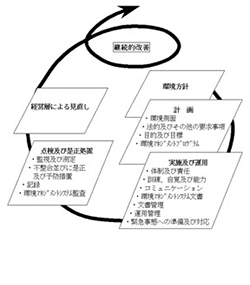02 Feb2016
By Renée A. Middleton and Rodrick Lucero
The AACTE Board of Directors subcommittee formed to engage in conversation with the Council for the Accreditation of Educator Preparation (CAEP) has concluded surveying AACTE members regarding their perspectives related to CAEP, standards, and accreditation in general. Thanks to all who responded to our survey!
The survey, which invited feedback last fall, received responses from 176 respondents in 46 states. Members of the subcommittee met with AACTE President/CEO Sharon Robinson on January 21 to begin an initial review of the responses. This month, we will finalize our review of the data and present our findings and recommendations to the AACTE Board of Directors, which commissioned the work last spring. At this point, we can report that the standards that garnered the most desire for continued dialogue and attention were Standards 3 and 4. Following the February Board meeting, we will share more specific themes from the survey.
02 Feb2016
By Michelle Kotek
On January 12, the Council of Chief State School Officers announced the finalists for the 2016 National Teacher of the Year award. The finalists are state teachers of the year from Washington, Connecticut, California, and Oklahoma.
01 Feb2016
By Gail Richmond
The editors of the Journal of Teacher Education are pleased to be organizing our annual major forum for AACTE’s 68th Annual Meeting. This year’s session, “Equity, Access, and the Digital Divide: Challenges for Teacher Education,” will be held Wednesday, February 24, 9:00-10:15 a.m. (Be sure to add it to your personal schedule in the Online Event Planner!)
Our goal is to bring together representatives of stakeholder institutions and organizations to discuss how AACTE members, working together, might effectively respond to the challenges teachers face in using technology to meet the needs of all students despite the inequities posed by the digital divide.
01 Feb2016
By Shane P. Martin
The views expressed in this post do not necessarily reflect the views of AACTE.
With the signing of the Every Student Succeeds Act (ESSA) in December 2015, there was an intentional shift in power from the federal government to the states when compared with its predecessor, the No Child Left Behind Act. There is great value in having more autonomy and accountability at the state level, and in many ways California has been ahead of this curve in terms of a strong statewide approach that focuses on local control and multiple measures of effectiveness. Under the leadership of California Commission on Teacher Credentialing Chair Linda Darling-Hammond, the state has forged a new path around program quality and assessment, revising its policies and practices to focus on outcomes instead of inputs. In many ways, this shift anticipated what was put into law with ESSA.
01 Feb2016
By Deborah Koolbeck
On January 28, the U.S. Department of Education issued more guidance to states on transitioning from the No Child Left Behind (NCLB) Act to the Every Student Succeeds Act (ESSA), which was signed into law in December.
The new law requires the eight states without NCLB waivers to continue intervening in schools identified as being in need of improvement in 2015-16 through 2016-17. But they don’t have to set aside 20% of their Title I dollars to provide tutoring and school choice. Should these states forego the requirement, they will have to develop and implement a 1-year transition plan to ensure their local education agencies provide alternative supports for eligible students and schools with the highest need. Additional information will be sent to the nonwaiver states in the coming days or weeks. (The eight nonwaiver states are California, Iowa, Montana, Nebraska, North Dakota, Vermont, Washington, and Wyoming.)
26 Jan2016
By Jerrica Thurman
Tomorrow is your last chance to register at a discount and to book your hotel room at The Mirage Hotel for the AACTE 68th Annual Meeting! Complete your conference registration by 11:59 p.m. Eastern on January 27 and save up to $40.
Next month, AACTE will hold its 68th Annual Meeting February 23-25 at The Mirage Hotel in Las Vegas, NV. Be there to experience the full lineup of conference activities around the conference theme, “Meeting the Demands of Professional Practice: Tough Questions, Tough Choices,” supported by four strands:
26 Jan2016
By Sungti Hsu
As the Every Student Succeeds Act rolls back the direct federal involvement in improving student achievement and hands over much of that authority to states, lawmakers throughout the country will be examining a range of issues related to PK-12 education during their 2016 legislative sessions. One of the most pressing concerns on many states’ lists is teacher shortages.
At AACTE’s 2016 Annual Meeting next month in Las Vegas, a three-part series of panel discussions on the topic has been organized with the help of the Advisory Council of State Representatives:
26 Jan2016
By Darlene Hunter

Continuous Improvement Cycle — Ministry of the Environment, Tokyo
From OPS #2: Using Data for Improvement
One of the special features of AACTE’s Online Professional Seminars (OPSs) is their attention to assessment internationally. Looking to other countries for examples of assessment processes helps us to appreciate commonalities and, as this diagram accomplishes, reminds us of the power of graphics—even if we don’t understand the text.
As you will learn in the introductory OPS short courses, assessment systems are often depicted as a circle of connected steps. The accreditation world brought “close the loop” to our diagramming to illustrate the conclusion of an assessment cycle and launch of the next one. A spiraling curve communicates the most powerful aspect of assessment: continuous improvement.
AACTE’s Quality Support Initiative offers two free introductory courses, OPS #1: Building Quality Assessments and OPS #2: Using Data for Improvement. Like all of AACTE’s online seminars, these feature mobile-friendly content and asynchronous discussions that can be accessed anytime during their 4-week span. They have no prerequisites, can be taken out of sequence, and are open to everyone.
26 Jan2016
By Tim Finklea
The Council for the Accreditation of Educator Preparation (CAEP) seeks reviewers and other volunteers for various roles in the agency’s work. Applications are open through March 18.
It is important for teacher educators to be represented in the CAEP Volunteer Corps, and this can be achieved if you volunteer! Please note that the call for service seeks a diverse population of educators, not only faculty from programs holding CAEP accreditation.
Volunteers are needed for the following roles (note that governance committee volunteers will not be solicited until next year):
26 Jan2016
By Kenneth Zeichner
The views expressed in this post do not necessarily reflect the views of AACTE.
In December 2015, I published an op-ed in the Washington Post in which I discussed my concerns with some of the teacher education provisions in the Every Student Succeeds Act (ESSA). I focused my comments on a section within the law that gives states the authority to use some of their Title II funds to establish “teacher preparation academies.” These academies would, in my opinion, lower standards for preparing teachers and would also support a general downward spiral in standards beyond the academies that would weaken public education.
The academies provision is the most prescriptive option under Title II and could require states to change laws that would lower standards for teacher education programs. For example, if states choose to support teacher preparation academies, then they would not be allowed to place any “unnecessary restrictions on the methods of the academy” which includes requiring faculty to have advanced degrees or placing any restrictions on undergraduate or professional course work. While it is not certain that programs with lower standards would be funded under the academy provision, this option opens the door to that possibility.
26 Jan2016
By Zachary VanHouten
Now is the time to apply for the 2016 Holocaust Institute for Teacher Educators (HITE), a week-long, all-expenses-paid professional development opportunity in Washington, DC, in June. Applications are due February 15!
This year, for the first time, the event is open to interested faculty members from any AACTE member institution. HITE is supported by a long-standing partnership between the U.S. Holocaust Memorial Museum and AACTE. If you or a colleague is interested in applying, don’t delay—complete your application today!
26 Jan2016
By Rodrick Lucero
You spoke, and we listened! Many of you have asked AACTE to add programming to the Annual Meeting for education deans. This year, we are pleased to do just that when we host a Deans Academy for education administrators during the Annual Meeting in Las Vegas.
This set of sessions, scheduled for 1:45-4:00 p.m. on Wednesday, February 24, has been put together by member deans and staff at AACTE for the purpose of providing meaningful information, space for dialogue, and an opportunity to explore solutions to the problems of practice inherent in leading schools, colleges, and departments of education.
21 Jan2016
By Deborah Koolbeck
The U.S. Department of Education Office of Postsecondary Education (OPE) this week announced its 2016 grant competitions and timelines. Plan now for these upcoming opportunities (follow the hyperlinks for details):
The Office of Higher Education Programs facilitates grant programs that promote and expand access to postsecondary education, increase college completion rates for U.S. students, and strengthen the capacity of colleges and universities:
19 Jan2016
By Zachary VanHouten
In a report released last week, Learning About Learning: What Every New Teacher Needs to Know, the National Council on Teacher Quality (NCTQ) evaluates four dozen teacher preparation textbooks for their content of specific student learning strategies. As an offshoot of the exercise, NCTQ will include a new standard, “Fundamentals of Instruction,” for secondary programs in its 2016 Teacher Prep Review.
For Learning About Learning, NCTQ reviewed 48 “relevant textbooks” used at just 28 institutions of higher education to determine whether they include six of the strategies identified as effective by the Institute of Education Sciences’ Organizing Instruction and Study to Improve Student Learning: A Practice Guide (2007). Finding little of what NCTQ sought, the report contends that textbook authors and publishers (and the preparation programs that assign the texts) are “failing the teaching profession, students, and the public by neglecting to provide our next generation of teachers with the fundamental knowledge they need to make learning ‘stick.’” See also Education Week’s coverage of the new report.
19 Jan2016
By Lillian Chenoweth

Real sign from the UK, highlighting the absence of Type O blood in the nation’s blood banks.
From OPS #3 Creating a Quality Assurance System
The “missing O” campaign in the United Kingdom embedded a crucial message in the community to bring attention to the dwindling supply of Type O blood in the nation’s blood banks. From graphics and encoded messaging like this city sign for Downing Street, citizens learned of a need in novel ways.
An entire environment can serve as the billboard for information that can drive change. That type of systemic thinking is behind AACTE’s Online Professional Seminar (OPS) #3: Creating a Quality Assurance System.
As Mark Lacelle-Peterson advises, “Every EPP has a quality assurance system, but it is not necessarily recognized. The work of committees, of data reviewers, of stakeholders at all levels contributes to what is essentially the quality assurance provision.”








